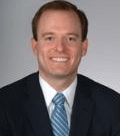860. A Day in the Life–What's It Really Like to Be a Neurosurgeon?
Stephen Kalhorn, MD

“You really delay a lot of life for this profession. Neurosurgery in particular is always calling you back, and you’re always thinking about these high risk patients and how to do better and what you can innovate to make things better for them. But you do pay for it. I can’t emphasize that enough because it does come at a cost, but I can’t imagine doing anything different. If I could do it again, I would do it the same way.”
Stephen Kalhorn is a husband, father of three, inventor and a professor of neurosurgery at the Medical University of South Carolina. He deals with conditions that affect the brain, spinal cord and vertebral column including brain and spinal tumors, degenerative conditions and traumatic injuries. He has a particular interest in minimally invasive, complex and adult spinal deformity surgery.
The Most Impactful Turning Point?
“As I progressed through school, I always really enjoyed all the science classes—chemistry, biology, physics. The most profound influence on my entire career, however, was my brother, who is 10 years older than me. He’s also a neurosurgeon and works at Georgetown University. Neurosurgery is a very atypical medical career with one of the smallest number of doctors nationally, but my brother’s example inspired me to pursue the path I finally chose. I am forever grateful to him for that because the work that I do every day is gratifying on so many levels.”
The Most Powerful Lessons and Experiences?
Over the many years I have been in this profession, there are several lessons and experiences that I believe are worth sharing:
1. During my time at Stritch School of Medicine at the University of Chicago, the emphasis went beyond the basic science you have to master to a strong emphasis on how you interact with patients and the powerful role that plays in their recovery, as well as your own personal satisfaction and performance.
2. When I got into my clinical rotations, I liked general surgery and its subspecialties, and felt like I could have a significant, positive impact to improve patients’ lives by combining the neurology behind things, so I chose neurosurgery.
3. I was fortunate to be accepted to the NYU Langone Medical Center for my seven-year residency. The program was clinically heavy and the residents there were some of the most skilled and compassionate neurosurgeons that I have every encountered. I remain connected with many of them today.
4. Because this profession is so intense and demanding emotionally, physically and financially, I would highly recommend that any student contemplating entering the medical field, reach out in their community and find the hospitals that allow you to “shadow” doctors to get an up close and personal look at what we do every day. We do that here in Charleston and get excellent feedback from students and parents, too.
Connecting With Stephen Kalhorn, MD
Email: Kalhorn@musc.edu
Website: muschealth.org/providerdirectory/Kalhorn-Stephen
Facebook: facebook.com/Neurosurg
Subscribe to the Podcast Free:
Careers: Neurosurgeon


